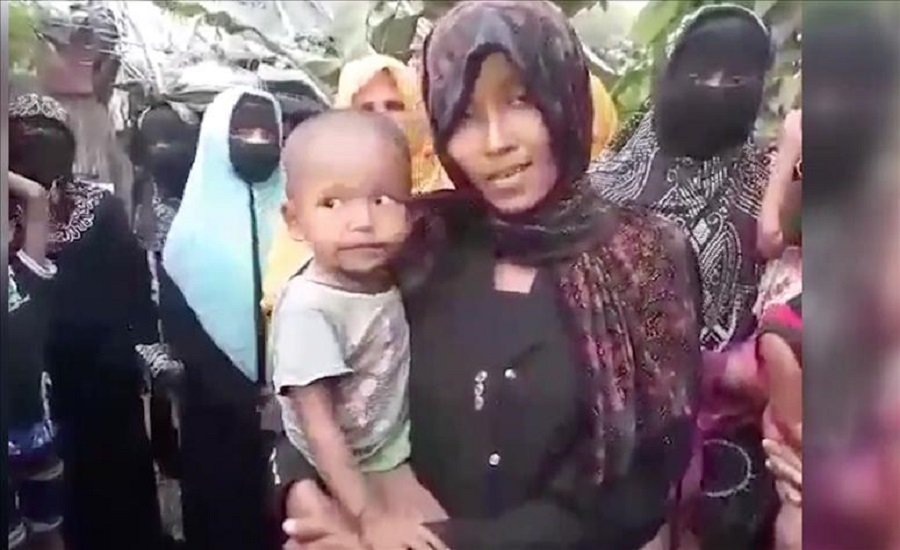“They (Myanmar military and Buddhist monks) are slaughtering and killing us, they have burned down our houses and raping our mothers and sisters, they are doing whatever they like, killing someone’s children or cutting women’s breasts,” said Rashida Begum.
Sorwar Alam
ANKARA (AA) — Rohingya Muslims fleeing horrific attacks in Myanmar to seek safety in Bangladesh have faced gunfire, near-starvation, and the death of their children, among other atrocities, according to firsthand testimony from the persecuted minority
Rohingya in Myanmar’s western state of Rakhine fled after violence flared last week amid years of persecution.
Due to the ongoing violence in Rakhine, thousands of people have poured across the border with Bangladesh, with several thousand having already managed to enter the country to the west of Myanmar.
Rashida Begum, one of the Rohingya who was able to enter Bangladesh, told Anadolu Agency that the Myanmar military and Buddhist monks had burned down their houses and killed many people in their village.
“I lost one of my sons,” said Begum, 25, who managed to enter Bangladesh after a difficult four-day journey from a rural area of the town of Teknaf in the southeastern Cox’s Bazar district.
“They are slaughtering and killing us, they have burned down our houses and raping our mothers and sisters, they are doing whatever they like, killing someone’s children or cutting women’s breasts,” she said.
We haven’t eaten and our children have been starving for days, everyone is crying. A few people got some food, but we don’t know where they got it from
Begum fled her village in Rakhine’s Maungdaw district with a group of locals only to reach a country where she knows no one.
“With difficulty, we first moved near a riverbank and had to jump in the river, because from back in Myanmar border guards were firing on us and targeting us,” she said.
“First we came to an island, and then we managed to cross the river and reach here.
“We don’t even have any clothes to wear, we lost everything, and don’t have anything to cook, no rice to eat or feed our children,” Begum added.
Deadly river
Ambiya Khatun, 55, another Rohingya woman, also described her difficult journey.
“We couldn’t cross the river so we had to flee to an island where we stayed for three nights. They also started torturing and beating people there, and some of them were killed and their bodies thrown into the water,” she said.
“When people jumped into the river, some were driven away, and some died,” Khatun said.
“For one day I stayed in a forest. It was an impossible journey. I couldn’t believe that I would be able to escape. Only Allah made it possible for me.
“We haven’t eaten and our children have been starving for days, everyone is crying. A few people got some food, but we don’t know where they got it from,” she added.
Both Begum and Khatun said they would to go back to their country “if they stop persecuting us and the living situation becomes normal.”
Human right violations
Fresh violence erupted in Myanmar’s Rakhine state on Aug. 25 when the country’s security forces launched an operation against the Rohingya Muslim community.
It triggered a fresh influx of refugees though the country towards neighboring Bangladesh, which hosts around 400,000 Rohingya, and has sealed off its border to the refugees.
The region has seen simmering tension between its Buddhist and Muslim populations since communal violence broke out in 2012.
A security crackdown launched last October in Maungdaw, where Rohingya make up the majority, led to a UN report on human rights violations by security forces that indicated crimes against humanity.
The UN documented mass gang-rape, killings — including babies and young children — brutal beatings and disappearances. Rohingya representatives have said approximately 400 people were slain during the crackdown.

